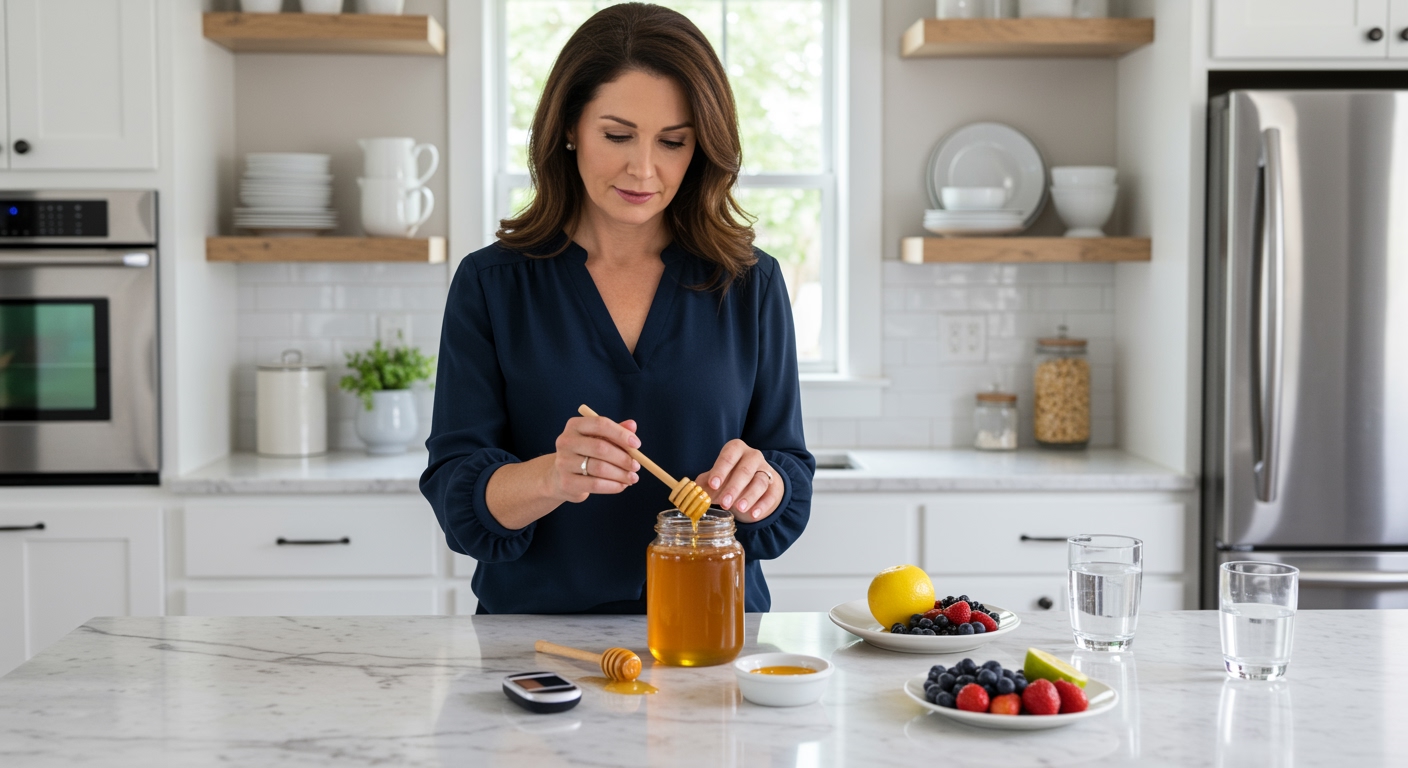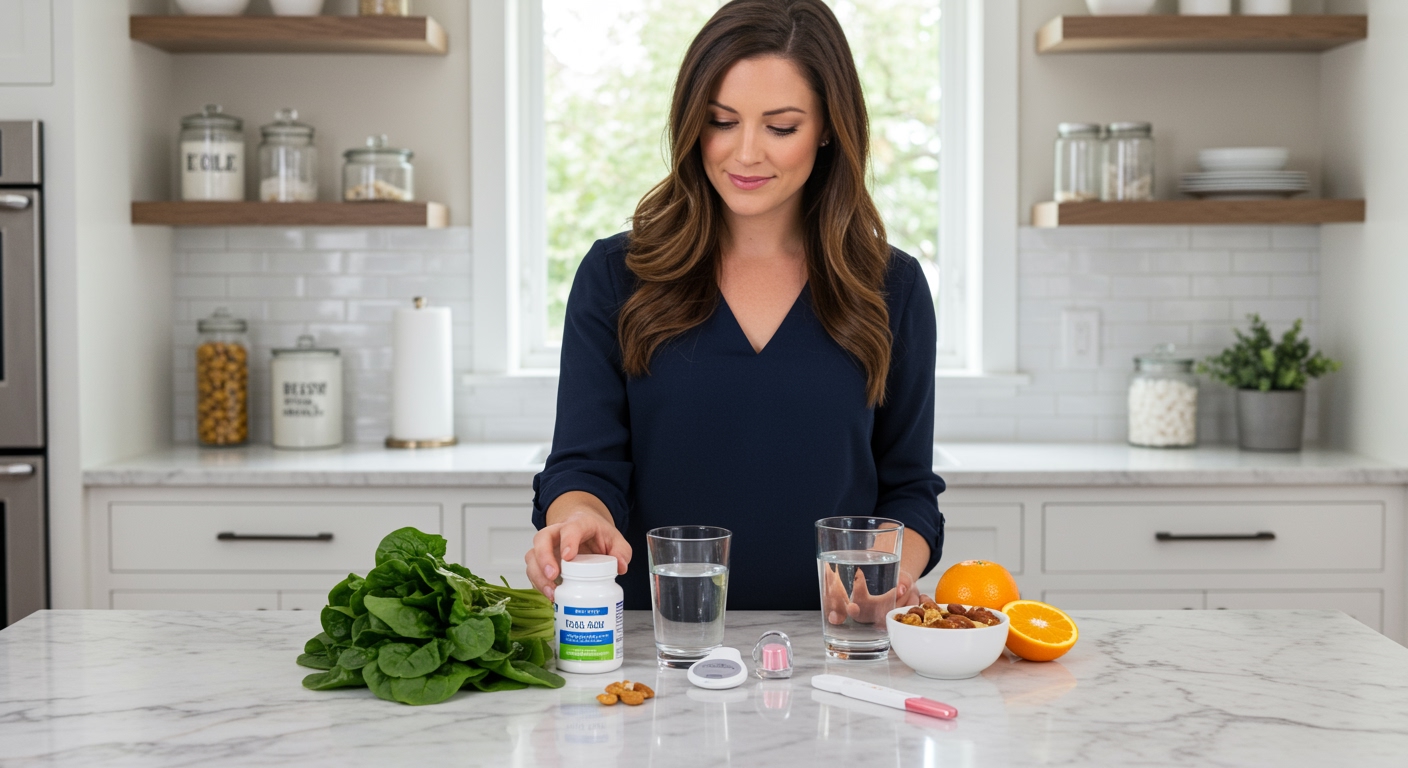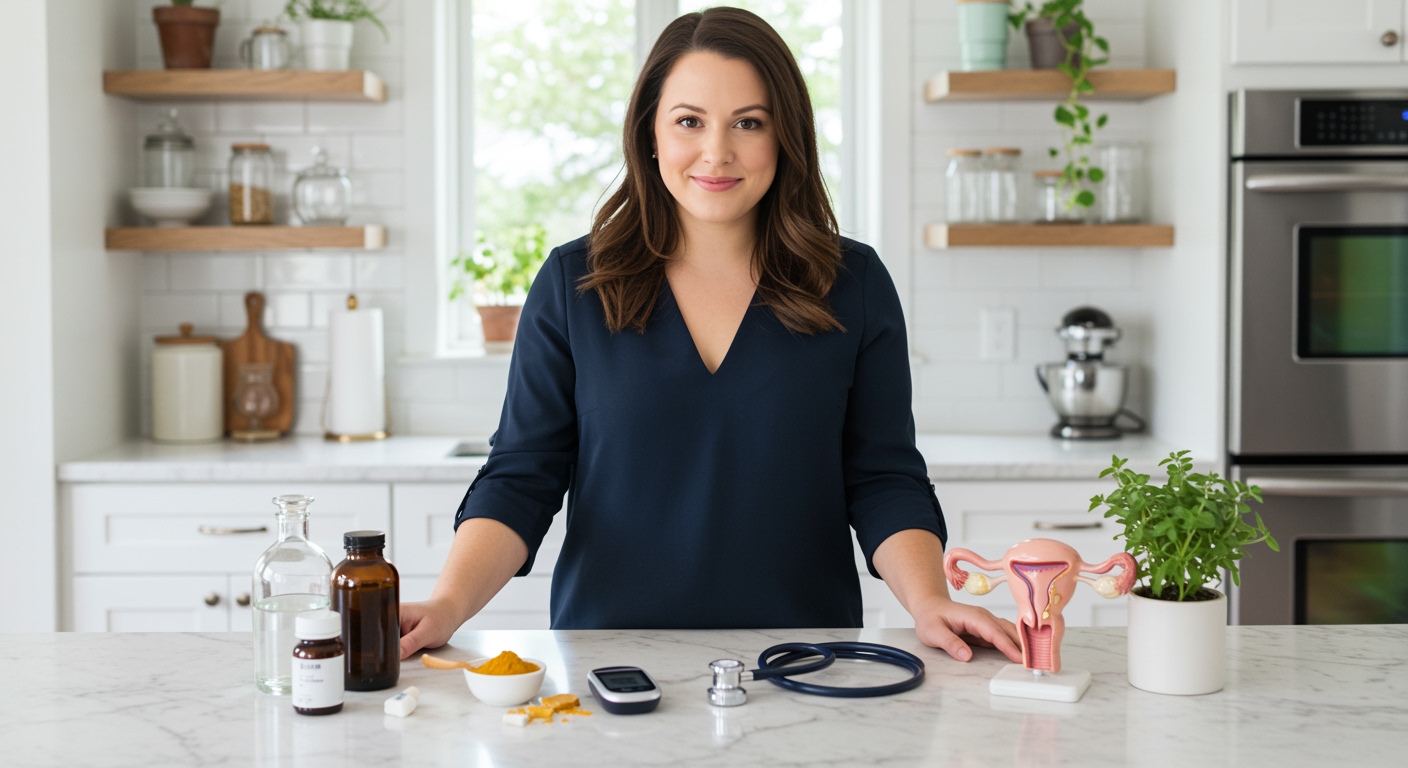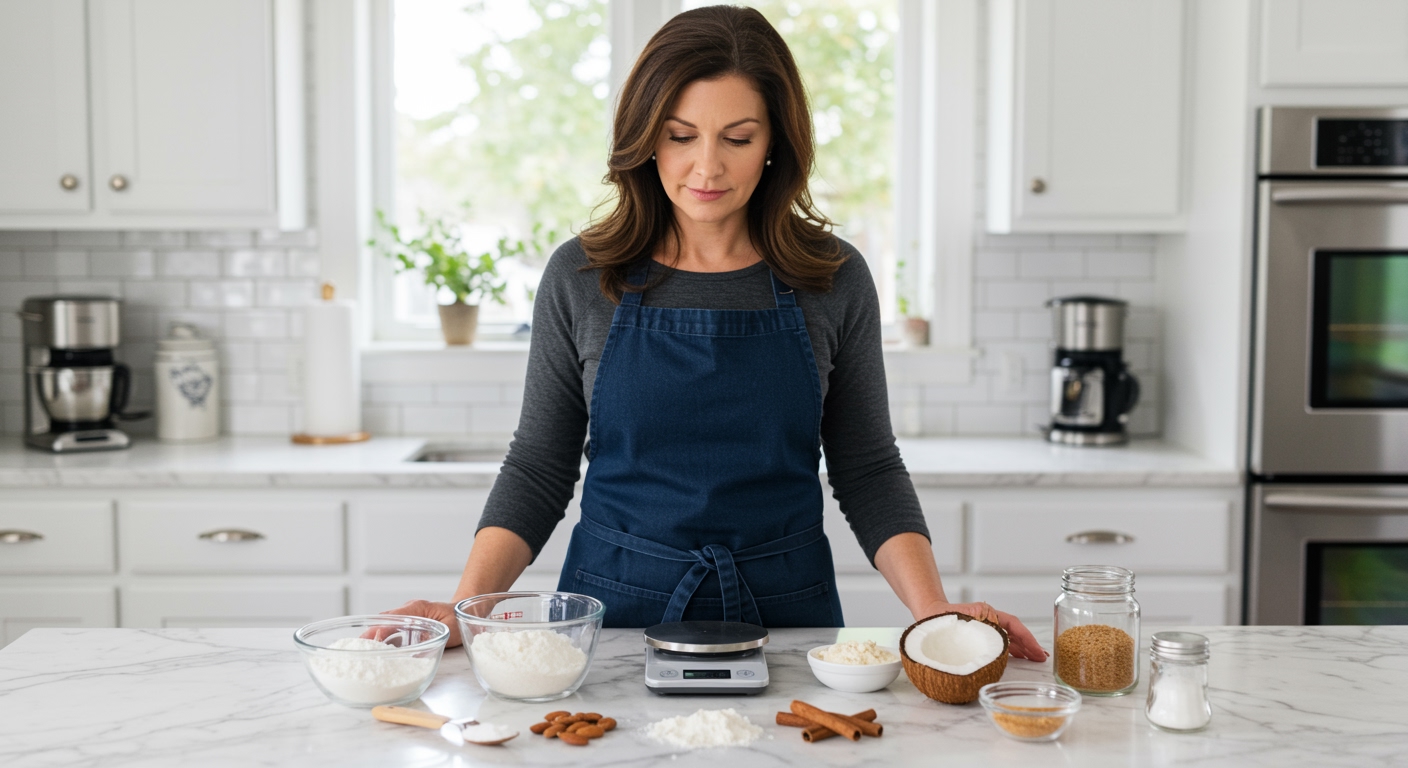✪ Key Takeaway: Honey can be part of a PCOS diet when used sparingly, but it still raises blood sugar and should be limited to 1-2 teaspoons daily.
Introduction
You reach for that jar of honey thinking it must be better than white sugar for your PCOS.
Many women with PCOS believe natural sweeteners automatically get a free pass when it comes to blood sugar management.
Hi, I’m Abdur, your nutrition coach and today I’m going to explain whether honey is truly a safe natural sweetener for women managing PCOS.
How Does Honey Affect Blood Sugar in PCOS?
Honey contains about 82% sugar by weight, primarily fructose and glucose.
The glycemic index of honey ranges from 35 to 87 depending on the type, with most varieties falling between 45-65.
This means honey can cause blood sugar spikes similar to table sugar, though sometimes slightly slower.
Women with PCOS already struggle with insulin resistance, making their bodies less efficient at processing any form of sugar.
When you consume honey, your pancreas still needs to produce insulin to manage the glucose entering your bloodstream.
The fructose in honey gets processed directly by your liver, which can contribute to fatty liver development when consumed in excess.
✪ Fact: One tablespoon of honey contains about 17 grams of sugar, nearly as much as a tablespoon of white sugar at 12 grams.
What Makes Honey Different From Regular Sugar?
Honey does contain small amounts of antioxidants, enzymes, and minerals that white sugar lacks.
These compounds include flavonoids and phenolic acids that may provide some anti-inflammatory benefits.
However, you would need to consume large amounts of honey to get meaningful quantities of these beneficial compounds.
The caloric density remains high at about 64 calories per tablespoon compared to sugar’s 49 calories.
Raw honey may contain trace amounts of bee pollen and propolis, which some studies suggest could have metabolic benefits.
But these potential advantages get overshadowed by honey’s primary effect of raising blood glucose levels.
✪ Pro Tip: Choose raw, unprocessed honey over commercial varieties to maximize any potential antioxidant benefits.
Can Honey Worsen PCOS Symptoms?
Excessive honey consumption can definitely worsen insulin resistance, the root cause of most PCOS symptoms.
Higher insulin levels trigger your ovaries to produce more androgens like testosterone.
This hormonal imbalance can lead to increased acne, hair growth in unwanted areas, and irregular periods.
The blood sugar rollercoaster from honey can also intensify sugar cravings and make weight management more difficult.
Some women report that even small amounts of honey trigger intense cravings for more sweet foods.
The inflammatory response from blood sugar spikes may also contribute to the chronic low-grade inflammation seen in PCOS.
✪ Note: Track your symptoms after eating honey to identify if it triggers cravings or worsens your PCOS symptoms.
How Much Honey Is Safe for PCOS?
If you choose to include honey in your PCOS diet, portion control becomes absolutely critical.
Limit yourself to 1-2 teaspoons per day maximum, and never consume it on an empty stomach.
Pair honey with protein or healthy fats to slow down sugar absorption and minimize blood glucose spikes.
Consider using honey only around workout times when your muscles can quickly utilize the glucose for energy.
Many women find success using honey as an occasional treat rather than a daily sweetener.
Monitor your blood sugar response with a glucose meter if possible to understand how honey specifically affects you.
✪ Pro Tip: Dilute honey in warm water with lemon and cinnamon to create a more blood sugar-friendly drink.
What Are Better Sweetener Alternatives for PCOS?
Stevia and monk fruit sweeteners provide sweetness without affecting blood sugar levels at all.
These natural zero-calorie options allow you to satisfy sweet cravings without triggering insulin responses.
Cinnamon can add natural sweetness while potentially improving insulin sensitivity.
Fresh or frozen berries provide natural sweetness along with fiber and antioxidants that support PCOS management.
Unsweetened applesauce or mashed banana can replace honey in many recipes while adding nutrients and fiber.
Learning to appreciate the natural flavors of foods without added sweeteners often becomes the most sustainable approach for PCOS management.
✪ Fact: Stevia may actually help improve insulin sensitivity according to some preliminary research studies.
The Bottom Line
Honey is not automatically safe for PCOS just because it comes from nature.
Natural does not always mean better when you have insulin resistance.
I would love to hear about your experience with honey and PCOS in the comments below, or if you have found other natural sweeteners that work better for managing your symptoms.
References
At NutritionCrown, we use quality and credible sources to ensure our content is accurate and trustworthy. Below are the sources referenced in creating this article:





